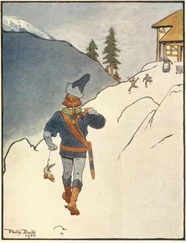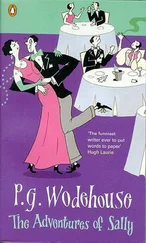Pelham Wodehouse - A Wodehouse Miscellany
Здесь есть возможность читать онлайн «Pelham Wodehouse - A Wodehouse Miscellany» весь текст электронной книги совершенно бесплатно (целиком полную версию без сокращений). В некоторых случаях можно слушать аудио, скачать через торрент в формате fb2 и присутствует краткое содержание. Жанр: Классическая проза, Юмористическая проза, на английском языке. Описание произведения, (предисловие) а так же отзывы посетителей доступны на портале библиотеки ЛибКат.
- Название:A Wodehouse Miscellany
- Автор:
- Жанр:
- Год:неизвестен
- ISBN:нет данных
- Рейтинг книги:3 / 5. Голосов: 1
-
Избранное:Добавить в избранное
- Отзывы:
-
Ваша оценка:
- 60
- 1
- 2
- 3
- 4
- 5
A Wodehouse Miscellany: краткое содержание, описание и аннотация
Предлагаем к чтению аннотацию, описание, краткое содержание или предисловие (зависит от того, что написал сам автор книги «A Wodehouse Miscellany»). Если вы не нашли необходимую информацию о книге — напишите в комментариях, мы постараемся отыскать её.
A Wodehouse Miscellany — читать онлайн бесплатно полную книгу (весь текст) целиком
Ниже представлен текст книги, разбитый по страницам. Система сохранения места последней прочитанной страницы, позволяет с удобством читать онлайн бесплатно книгу «A Wodehouse Miscellany», без необходимости каждый раз заново искать на чём Вы остановились. Поставьте закладку, и сможете в любой момент перейти на страницу, на которой закончили чтение.
Интервал:
Закладка:
Overcome this difficulty, and another arises. Certain scenes are constructed so that A gets a laugh at the expense of B; but B is a five-hundred-a-week comedian and A is a two-hundred-a-week juvenile, and B refuses to "play straight" even for an instant for a social inferior. The original line is such that it cannot be simply switched from one to the other. The scene has to be entirely reconstructed and further laugh lines thought of. Multiply this by a hundred, and you will begin to understand why, when you see a librettist, he is generally lying on his back on the sidewalk with a crowd standing round, saying, "Give him air."
So, do not grudge the librettist his thousand a week or whatever it is. Remember what he has suffered and consider his emotions on the morning after the production when he sees lines which he invented at the cost of permanently straining his brain, attributed by the critics to the impromptu invention of the leading comedian. Of all the saddest words of tongue or pen, the saddest‒to a musical comedy author‒are these in the morning paper: "The bulk of the humor was sustained by Walter Wiffle, who gagged his way merrily through the piece."
ON THE WRITING OF LYRICS
The musical comedy lyric is an interesting survival of the days, long since departed, when poets worked. As everyone knows, the only real obstacle in the way of turning out poetry by the mile was the fact that you had to make the darned stuff rhyme.
Many lyricists rhyme as they pronounce, and their pronunciation is simply horrible. They can make "home" rhyme with "alone," and "saw" with "more," and go right off and look their innocent children in the eye without a touch of shame.
But let us not blame the erring lyricist too much. It isn't his fault that he does these things. It is the fault of the English language. Whoever invented the English language must have been a prose-writer, not a versifier; for he has made meagre provision for the poets. Indeed, the word "you" is almost the only decent chance he has given them. You can do something with a word like "you." It rhymes with "sue," "eyes of blue," "woo," and all sorts of succulent things, easily fitted into the fabric of a lyric. And it has the enormous advantage that it can be repeated thrice at the end of a refrain when the composer has given you those three long notes, which is about all a composer ever thinks of. When a composer hands a lyricist a "dummy" for a song, ending thus,
Tiddley-tum, tiddley-tum,
Pom-pom-pom, pom-pom-pom,
Tum, tum, tum,
the lyricist just shoves down "You, you, you" for the last line, and then sets to work to fit the rest of the words to it. I have dwelled on this, for it is noteworthy as the only bright spot in a lyricist's life, the only real cinch the poor man has.
But take the word "love."
When the board of directors, or whoever it was, was arranging the language, you would have thought that, if they had had a spark of pity in their systems, they would have tacked on to that emotion of thoughts of which the young man's fancy lightly turns in spring, some word ending in an open vowel. They must have known that lyricists would want to use whatever word they selected as a label for the above-mentioned emotion far more frequently than any other word in the language. It wasn't much to ask of them to choose a word capable of numerous rhymes. But no, they went and made it "love," causing vast misery to millions.
"Love" rhymes with "dove," "glove," "above," and "shove." It is true that poets who print their stuff instead of having it sung take a mean advantage by ringing in words like "prove" and "move"; but the lyricist is not allowed to do that. This is the wretched unfairness of the lyricist's lot. The language gets him both ways. It won't let him rhyme "love" with "move," and it won't let him rhyme "maternal" with "colonel." If he tries the first course, he is told that the rhyme, though all right for the eye, is wrong for the ear. If he tries the second course, they say that the rhyme, though more or less ninety-nine percent pure for the ear, falls short when tested by the eye. And, when he is driven back on one of the regular, guaranteed rhymes, he is taunted with triteness of phrase.
No lyricist wants to keep linking "love" with "skies above" and "turtle dove," but what can he do? You can't do a thing with "shove"; and "glove" is one of those aloof words which are not good mixers. And‒mark the brutality of the thing‒there is no word you can substitute for "love." It is just as if they did it on purpose.
"Home" is another example. It is the lyricist's staff of life. But all he can do is to roam across the foam, if he wants to use it. He can put in "Nome," of course, as a pinch-hitter in special crises, but very seldom; with the result that his poetic soul, straining at its bonds, goes and uses "alone," "bone," "tone," and "thrown," exciting hoots of derision.
But it is not only the paucity of rhymes that sours the lyricist's life. He is restricted in his use of material, as well. If every audience to which a musical comedy is destined to play were a metropolitan audience, all might be well; but there is the "road" to consider. And even a metropolitan audience likes its lyrics as much as possible in the language of everyday. That is one of the thousand reasons why new Gilberts do not arise. Gilbert had the advantage of being a genius, but he had the additional advantage of writing for a public which permitted him to use his full vocabulary, and even to drop into foreign languages, even Latin and a little Greek when he felt like it. (I allude to that song in "The Grand Duke.")
And yet the modern lyricist, to look on the bright side, has advantages that Gilbert never had. Gilbert never realised the possibilities of Hawaii, with its admirably named beaches, shores, and musical instruments. Hawaii‒capable as it is of being rhymed with "higher"‒has done much to sweeten the lot‒and increase the annual income of an industrious and highly respectable but down-trodden class of the community.
THE PAST THEATRICAL SEASON
And the Six Best Performances by Unstarred Actors
What lessons do we draw from the past theatrical season?
In the first place, the success of The Wanderer proves that the day of the small and intimate production is over and that what the public wants is the large spectacle. In the second place, the success of Oh, Boy! ‒(I hate to refer to it, as I am one of the trio who perpetrated it; but, honestly, we're simply turning them away in droves, and Rockefeller has to touch Morgan for a bit if he wants to buy a ticket from the speculators)‒proves that the day of the large spectacle is over and that what the public wants is the small and intimate production.
Then, the capacity business done by The Thirteenth Chair shows clearly that what the proletariat demands nowadays, is the plotty piece and that the sun of the bright dialogue comedy has set; while the capacity business done by A Successful Calamity shows clearly that the number of the plotty piece is up.
You will all feel better and more able to enjoy yourselves now that a trained critical mind has put you right on this subtle point.
No review of a theatrical season would be complete without a tabulated list‒or even an untabulated one‒of the six best performances by unstarred actors during the past season.
The present past season‒that is to say, the past season which at present is the last season‒has been peculiarly rich in hot efforts by all sorts of performers. My own choice would be: 1. Anna Wheaton, in Oh, Boy! 2. Marie Carroll, in the piece at the Princess Theatre. 3. Edna May Oliver, in Comstock and Elliott's new musical comedy. 4. Tom Powers, in the show on the south side of 39th Street. 5. Hal Forde, in the successor to Very Good, Eddie . 6. Stephen Maley, in Oh, Boy!
Читать дальшеИнтервал:
Закладка:
Похожие книги на «A Wodehouse Miscellany»
Представляем Вашему вниманию похожие книги на «A Wodehouse Miscellany» списком для выбора. Мы отобрали схожую по названию и смыслу литературу в надежде предоставить читателям больше вариантов отыскать новые, интересные, ещё непрочитанные произведения.
Обсуждение, отзывы о книге «A Wodehouse Miscellany» и просто собственные мнения читателей. Оставьте ваши комментарии, напишите, что Вы думаете о произведении, его смысле или главных героях. Укажите что конкретно понравилось, а что нет, и почему Вы так считаете.


